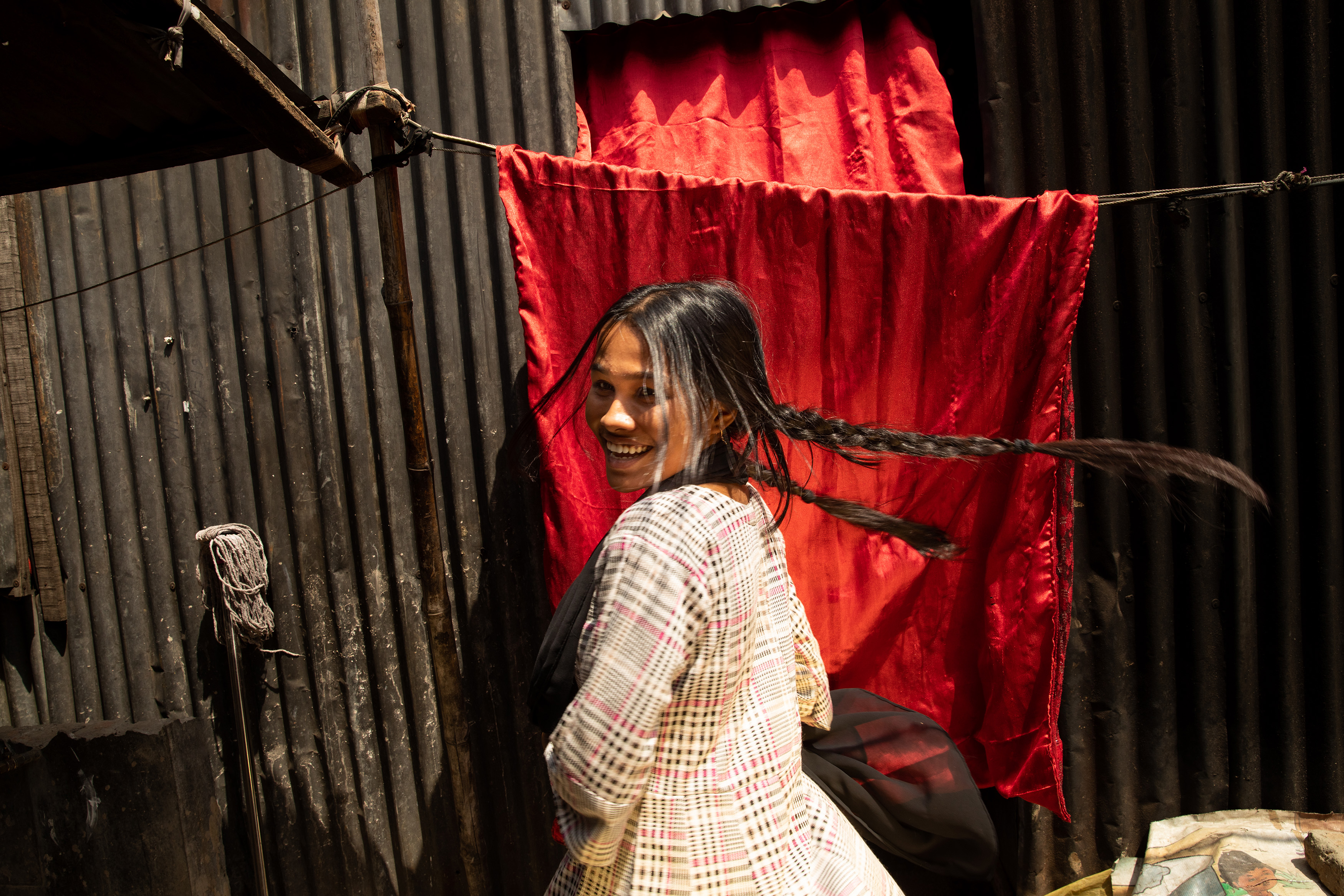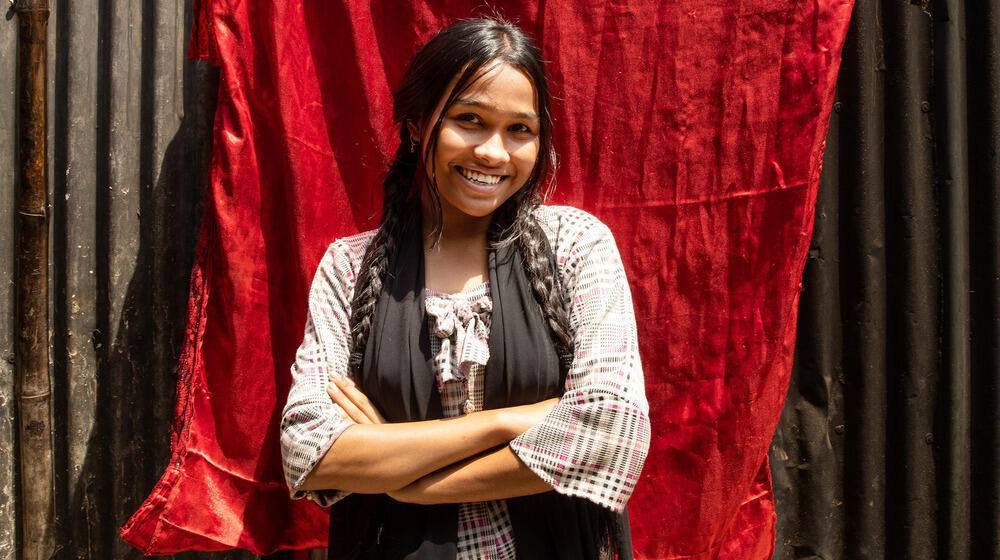Moni's journey into womanhood began two years ago when she started experiencing her menstrual cycle. Living in a one-room home with her parents and four siblings, Moni's open and lively personality shines through as we chat at our Kishori Resource Centre (KRC) near her residence. Here, she finds solace in a community of friends and a dedicated Gender Officer, providing her with a safe space to discuss health, gender, and marriage.
Reflecting on the cultural taboos surrounding menstruation, Moni shares, "At home, we can't really talk about it much. I'm lucky that I can speak to my mom about such things. But I know I'm luckier than most of my friends who have no one at all to speak to about this." She understands the importance of breaking the silence and destigmatizing menstruation, even in the face of prevailing myths and misconceptions.
Moni's involvement in the joint initiative by UNFPA and World Food Programme called 'Building Blocks,' has been instrumental in her journey. This project introduces a digital platform in Dhaka's informal settlements, offering menstrual supplies, food, and essential information through community shops. The initiative empowers women and adolescent girls, like Moni, by providing them with monthly packages of disposable menstrual pads and food items from conveniently located shops near their residences.

Recalling her initial experience, Moni shares, "I thought I was dying. But, with my mother's support and explanation, I came to accept menstruation as a natural and normal part of womanhood."
She also sheds light on the various cultural beliefs she encounters, such as restrictions on food during menstruation or avoiding certain places like graveyards. Despite her playful skepticism, Moni acknowledges the lingering impact of these beliefs on her daily life.
In the past, Moni faced challenges attending school during her menstrual cycle, but the introduction of pads made a significant difference. She reveals, "Now that I am able to use pads, I skip school less and less. Pads made it much more bearable." However, she remains aware of the limited accessibility to other sanitary products she's heard about through social media, including menstrual cups.
This young girl's journey is not without encounters with both kindness and cruelty. Moni shares a heartwarming incident when a boy at school noticed a stain on her skirt and, instead of teasing her, arranged for a rickshaw to take her home. However, she also witnessed boys taking photos of another girl with a stain, highlighting the importance of empathy and respect.
Moni's story reminds us of the challenges young girls face in navigating their menstrual health, particularly in underserved communities. UNFPA continues to strive towards empowering girls like Moni, providing them with the tools, knowledge, and support necessary to embrace their womanhood and pursue their dreams.


